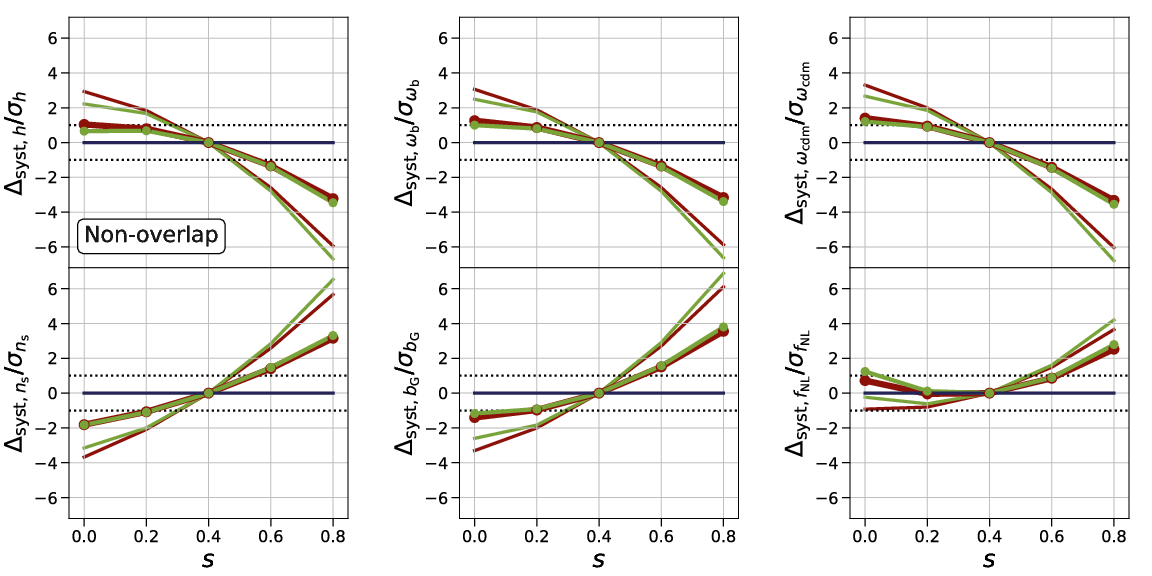| Article | |
| Report number | arXiv:2005.09666 ; CERN-TH-2020-054 |
| Title | Beware of commonly used approximations : Part II. Estimating systematic biases in the best-fit parameters |
| Related title | Beware of commonly used approximations II: estimating systematic biases in the best-fit parameters |
| Author(s) | Bernal, José Luis ; Bellomo, Nicola ; Raccanelli, Alvise ; Verde, Licia |
| Publication | 2020-10-06 |
| Imprint | 2020-05-19 |
| Number of pages | 21 |
| Note | 21 pages (+5 pages of appendices +6 pages of references), 8 figures, 1 table. Multi_CLASS can be found in https://github.com/nbellomo/Multi_CLASS |
| In: | JCAP 2010 (2020) 017 |
| DOI | 10.1088/1475-7516/2020/10/017 (publication) |
| Subject category | astro-ph.CO ; Astrophysics and Astronomy |
| Abstract | Cosmological parameter estimation from forthcoming experiments promise to reach much greater precision than current constraints. As statistical errors shrink, the required control over systematic errors increases. Therefore, models or approximations that were sufficiently accurate so far, may introduce significant systematic biases in the parameter best-fit values and jeopardize the robustness of cosmological analyses. We present a general expression to estimate a priori the systematic error introduced in parameter inference due to the use of insufficiently good approximations in the computation of the observable of interest or the assumption of an incorrect underlying model. Although this methodology can be applied to measurements of any scientific field, we illustrate its power by studying the effect of modeling the angular galaxy power spectrum incorrectly. We also introduce Multi_CLASS, a new, public modification of the Boltzmann code CLASS, which includes the possibility to compute angular cross-power spectra for two different tracers. We find that significant biases in most of the cosmological parameters are introduced if one assumes the Limber approximation or neglects lensing magnification in modern galaxy survey analyses, and the effect is in general larger for the multi-tracer case, especially for the parameter controlling primordial non-Gaussianity of the local type, $f_{\rm NL}$. |
| Copyright/License | preprint: (License: arXiv nonexclusive-distrib 1.0) publication: © 2020 IOP Publishing Ltd and Sissa Medialab |
Corresponding record in: Inspire
Record created 2020-09-09, last modified 2023-11-10


